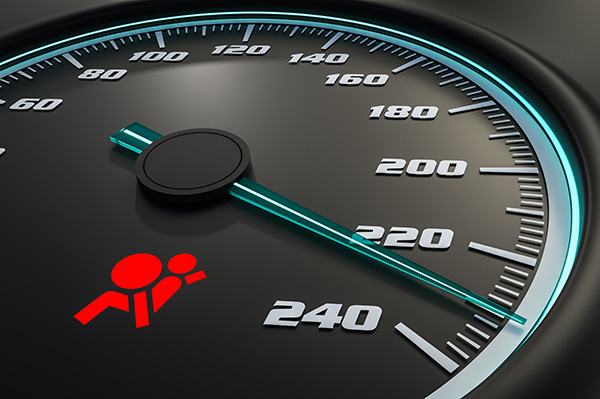
Seeing the ABS warning light on your dashboard can be alarming. The Anti-lock Braking System (ABS) is a critical safety feature in modern vehicles, designed to prevent the wheels from locking up during braking, thereby maintaining contact with the road. When this light comes on, it's signaling that something is amiss with your braking system. Let's explore why your ABS warning light might be on and what steps you should take to address it.
Understanding the ABS Warning Light
The ABS warning light is part of your vehicle's onboard diagnostics system. When you turn on your vehicle, this light should briefly illuminate as part of a self-check. If it stays on or comes on while driving, it indicates a problem. The issue could range from a minor sensor malfunction to a more significant problem with the ABS system itself.
Common Reasons for the ABS Warning Light to Come On
Faulty ABS Sensors
ABS sensors are located at each wheel and monitor the speed of the wheels to ensure they are all rotating at the same speed. If one or more of these sensors fails or gets dirty, it can send incorrect information to the ABS control module, triggering the warning light.
Damaged or Worn Brake Pads
Worn or damaged brake pads can also cause the ABS warning light to activate. If the brake pads are too thin, it can affect the overall braking performance and trigger the ABS system to alert you of a potential issue.
Low Brake Fluid Levels
The ABS relies on hydraulic brake fluid to function correctly. If the brake fluid level is low, ABS operation can be impaired. This could be due to a leak in the brake lines or simply because the fluid needs topping up.
Malfunctioning ABS Module
The ABS module is the brain of the system. If this component fails, it can't correctly process the signals from the wheel sensors and manage the braking system effectively, resulting in the ABS warning light coming on.
Blown Fuse
Sometimes, the issue can be as simple as a blown fuse. A fuse protects the ABS system, and if this fuse blows, it can disable the system and trigger the warning light.
What to Do When Your ABS Warning Light Comes On
Seeing the ABS warning light isn't cause for immediate panic, but it does mean you should take action promptly. Here's what you should do:
Check Your Brake Fluid Level
Open your vehicle's hood and locate the brake fluid reservoir. Ensure the fluid is at the proper level. If it's low, top it up with the appropriate brake fluid type for your vehicle. If the fluid level drops again quickly, you likely have a leak that needs professional attention.
Inspect the ABS Sensors and Wiring
Check the ABS sensors at each wheel for any visible damage or dirt buildup. Clean them if necessary. Also, inspect the wiring for any signs of wear or damage that might be affecting the sensor's performance.
Look for Blown Fuses
Refer to your vehicle's manual to locate the fuse box and identify the ABS fuse. If the fuse is blown, replace it with one of the same amperage. If it blows again, there might be a deeper electrical issue requiring a professional diagnosis.
Check Your Brake Pads
Inspect your brake pads for wear. If they are too thin or damaged, replace them. This is essential not only for resolving the ABS light issue but also for maintaining overall braking efficiency.
Get a Professional Diagnosis
If you're unable to identify or fix the issue yourself, it's time to visit Chahel Automotive. We use specialized diagnostic tools to read the error codes from your vehicle's computer and accurately pinpoint the problem.
Why You Shouldn't Ignore the ABS Warning Light
Ignoring the ABS warning light is not advisable. The ABS is a vital safety feature, and driving without it functioning correctly can compromise your safety, especially in slippery conditions. Here's why addressing the ABS light promptly is crucial:
- Enhanced Safety: The ABS prevents wheel lockup during emergency braking, allowing you to maintain control of your vehicle.
- Avoiding Costly Repairs: Early diagnosis and repair can prevent minor issues from escalating into more severe and costly problems.
- Maintaining Vehicle Value: Keeping all safety systems in working order preserves your vehicle's value and ensures it remains reliable.
Address ABS issues immediately to ensure your vehicle's safety. Visit Chahel Automotive for a thorough inspection and repair.